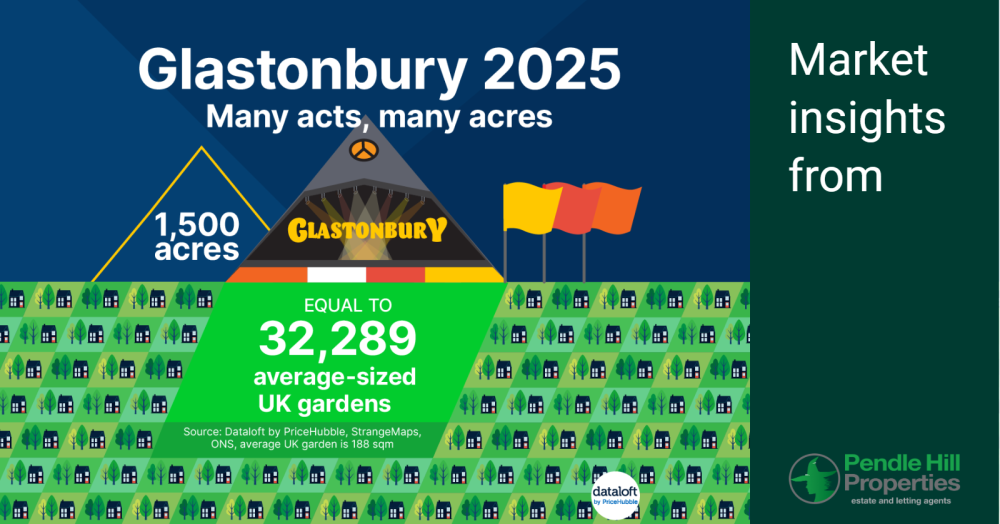Glastonbury 2025 has officially drawn to a close — and once again, the legendary festival proved why it’s one of the biggest cultural events on the planet.
🎪 First held in 1970, the festival now pulls in around 200,000 visitors each year. With over 80 stages and more than 3,000 performances, Glastonbury goes far beyond music, offering dance, comedy, art, activism, and a unique sense of community that’s hard to match.
But it’s not just the lineup that’s massive...
📏 The site now spans a staggering 1,500 acres — that’s the equivalent of 32,289 average-sized gardens or twice the size of the City of London. Glastonbury has grown into a mid-sized town for one weekend a year!
🎤 This year’s headliners included:
- Neil Young
- Olivia Rodrigo
- Rod Stewart
…with surprise ‘secret’ sets from Lewis Capaldi and Lorde adding even more buzz.
🎪 Closer to Home: The Beat-Herder Effect on the Ribble Valley
While Glastonbury makes the national headlines, here in the Ribble Valley, we have our own cultural powerhouse: The Beat-Herder Festival.
Set in the stunning Lancashire countryside just outside Clitheroe, Beat-Herder may be smaller in scale — typically hosting around 12,000 festival-goers — but its impact on the local area is growing year on year.
🪩 Known for its immersive stages, eclectic music lineup, and fiercely independent spirit, Beat-Herder brings in a creative, vibrant audience that fuels tourism, hospitality, and even second-home interest in the Ribble Valley.
🛏️ Local accommodation sells out months in advance, and nearby towns like Whalley, Sabden, and Clitheroe see a spike in visitor footfall, boosting small businesses and raising the profile of the area.
Much like Glastonbury, it’s proof that culture drives value.
🏡 The Property Perspective
Events like Beat-Herder might not have Glastonbury’s scale, but they absolutely contribute to a local lifestyle buzz that buyers are increasingly looking for.
When a town or rural area becomes known for more than just scenery — when it offers experience, creativity, and community — it starts to appeal not just to locals but to remote workers, investors, and relocating families too.
In a world where people want to live somewhere that feels alive, connected, and interesting, festivals are more than fun. They’re economic drivers.
📲 Want to know what’s impacting property values in your area — from music festivals to artisan markets?
